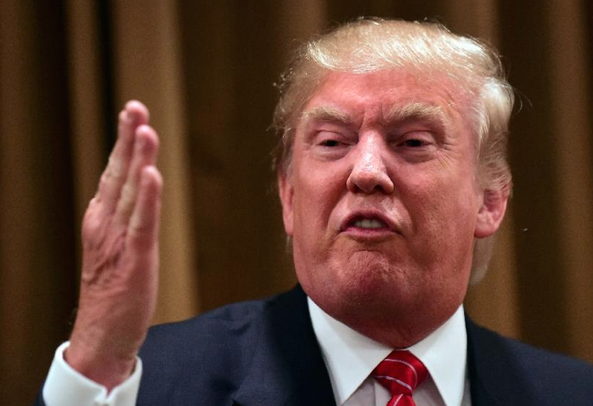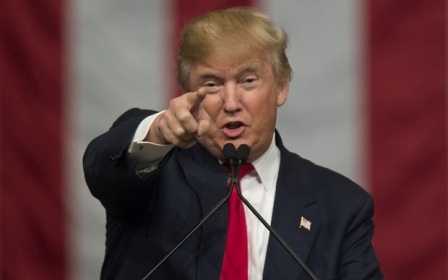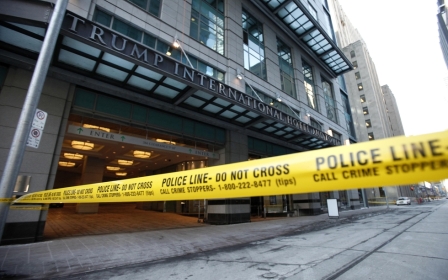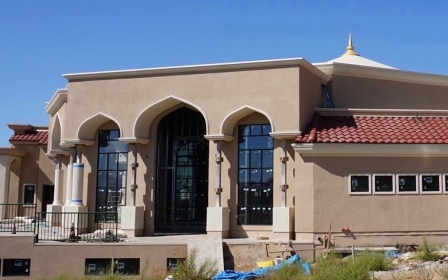Trump win: Nearly 900 cases of hate, intimidation reported

Nearly 900 incidents of hate and intolerance were recorded across the United States in the days following Donald Trump's election, many by assailants apparently emboldened by his victory, an advocacy group reported Tuesday.
"I have no doubt whatsoever that this is a tremendous, tremendous undercount," said Richard Cohen, president of the Southern Poverty Law Center, which monitors hate crimes.
'The level of hate that's been unleashed by the election... is something entirely new'
The group recorded 867 cases of harassment and intimidation in the 10 days following Trump's election, which was cheered by white supremacists and others fired up by his rhetoric disparaging immigrants, Muslims and women.
"Many harassers invoked Trump's name during assaults, making it clear that the outbreak of hate stemmed in large part from his electoral success," it said in a report.
Though it was not clear from the SPLC data whether the United States is experiencing a spike in such attacks, Cohen said that: "Time after time, those who reported hate incidents to us said they had never experienced anything like that before."
"The level of hate that's been unleashed by the election, they told us, is something entirely new."
Most incidents involved graffiti or verbal harassment, although a small number were violent physical altercations.
Slightly more than half of the cases were anti-immigrant or anti-black. The incidents were reported in nearly every state in the country, led by California with 99 cases.
At a middle school in Colorado Springs, Colorado, Latino students were told that "Not only should Trump build a wall, but it should be [electrified] and Mexicans should have to wear shock collars."
In Silver Spring, Maryland, a church offering Spanish-language services was spray-painted with the messages "Trump Nation" and "Whites Only."
Swastikas
In Los Angeles, a large sign saying "NO N****RS" was placed next to a bus shelter, while a woman in Arizona reported that two men in a truck yelled "Trump forever," adding racist and sexist slurs, as she put groceries in her vehicle.
There were 80 recorded instances of swastikas scrawled onto public spaces, schools, cars and garage doors. Many also included references to Trump.
In Vermont, the front doors of a synagogue were defaced with swastikas.
Although the SPLC report only detailed cases from the 10 days after the election, Trump-related disturbances have continued to crop up as the president-elect stokes controversy with his senior advisor picks.
Trump has faced calls to distance himself from white nationalists, and the pressure became acute after members of the white supremacist movement were caught on film celebrating his victory with Nazi salutes.
He finally did so in an interview with the New York Times last week, saying: "I don't want to energise the group, and I disavow the group."
But Trump's pick of chief strategist Steve Bannon remains closely identified with white nationalism, while his attorney general nominee Senator Jeff Sessions has been accused of racism and his national security advisor, retired lieutenant Michael Flynn, has promoted anti-Muslim conspiracy theories.
The SPLC is spearheading an online petition calling on Trump to rescind his appointment of Bannon.
'Stop it'
In his first major interview following his election, Trump instructed perpetrators of harassment and intimidation to "Stop it."
But those words fall flat when considering Trump's senior administration appointments, Cohen said.
"His words must be followed by concrete actions, both his policies and his appointments, to repair the wounds of division that his campaign has caused," he said, calling on Trump to apologise and reach out to marginalised communities.
"If he doesn't do those things, the hate that Mr Trump has unleashed during this election season will continue to flourish."
Trump has proposed policies that have put civil rights advocates on alert. His Muslim ban proposal, suggestions of creating a Muslim registry, attempts to crack down on journalists and pledge to deport all undocumented immigrants have raised concerns.
On Tuesday, he tweeted that people who burn the American flag should lose their US citizenship or spend a year in jail, although US law bars the government from revoking citizenships, and burning the flag is not unlawful.
New MEE newsletter: Jerusalem Dispatch
Sign up to get the latest insights and analysis on Israel-Palestine, alongside Turkey Unpacked and other MEE newsletters
Middle East Eye delivers independent and unrivalled coverage and analysis of the Middle East, North Africa and beyond. To learn more about republishing this content and the associated fees, please fill out this form. More about MEE can be found here.




